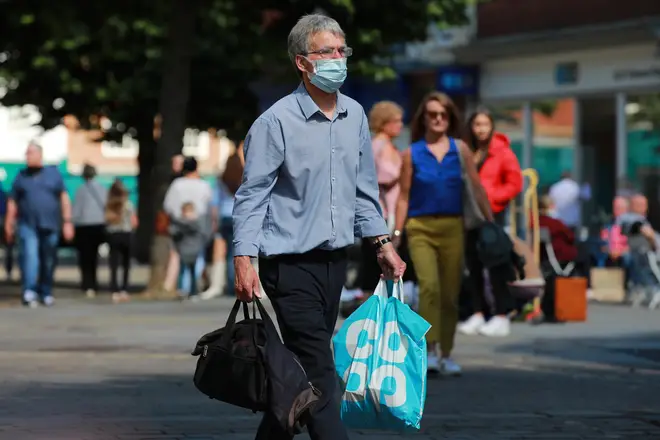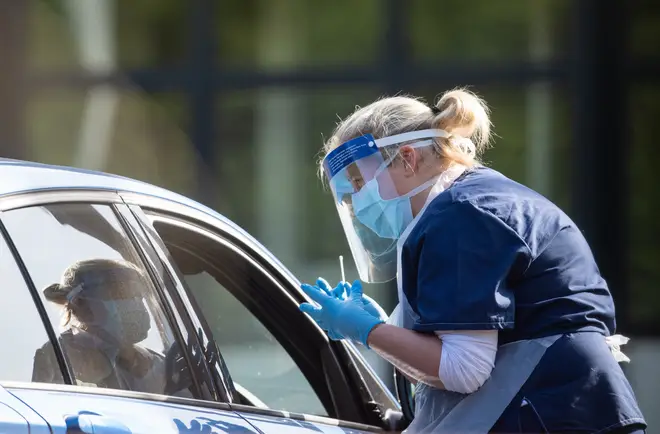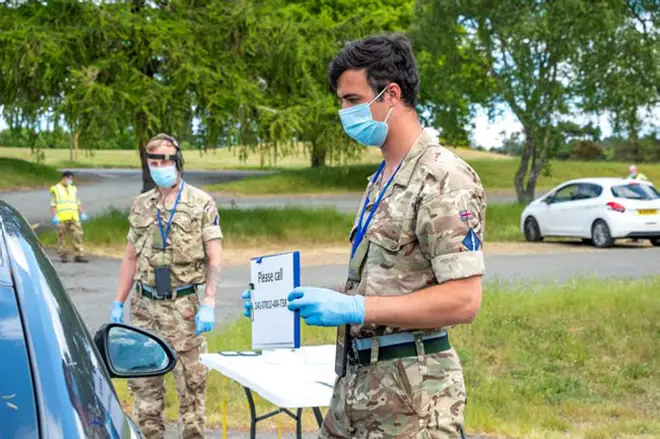
Clive Bull 1am - 4am
30 July 2020, 12:07

The self-isolation period for people who test positive for coronavirus has been extended from seven to ten days.
Chief medical officers from all four corners of the UK agreed on the move amid fears of a second wave brewing across Europe.
The seven-day rule had applied up until now to all those who become infected with Covid-19 or who show symptoms - a new continuous cough, a high fever or loss of taste or smell.
But why change things now? Here’s everything you need to know.
The three day extension on the self-isolation requirement, announced on Thursday morning, brings the UK into line with World Health Organization (WHO) guidance.
Since the start of the pandemic, those who return a positive test or have symptoms have had to self-isolate for seven days. But fresh evidence has emerged that people may still be infections up to ten days after they fall unwell.
READ MORE: Coronavirus self-isolation rises to ten days amid second wave warnings

Those who come into contact with an infected person still have to self-isolate for 14 days. Anyone with symptoms who returns a negative test no longer has to self-isolate.
The latest extension is separate from the 14-day quarantine requirement for those who return to Britain from countries including Spain.
However, Health Secretary Matt Hancock said ministers were investigating ways to reduce the 14-day quarantine period for new arrivals to the UK from at-risk countries, amid reports it could be cut to 10 days.
Professor Jonathan Van-Tam, England’s deputy chief medical officer, told reporters the change was being made due to the “low but real possibility of infectiousness” between seven and 10 days after the onset of the illness.
READ MORE: Which countries in Europe have surging coronavirus cases?
READ MORE: England had highest excess deaths in Europe in first half of 2020, ONS says

Covid self-isolation period will be increased to 10 days, Matt Hancock confirms
A joint statement from the UK's chief medical officers, Professor Chris Whitty, Dr Frank Atherton, Dr Gregor Smith and Dr Michael McBride said: “In symptomatic people Covid-19 is most infectious just before, and for the first few days after symptoms begin. It is very important people with symptoms self-isolate and get a test, which will allow contact tracing.
“Evidence, although still limited, has strengthened and shows that people with Covid-19 who are mildly ill and are recovering have a low but real possibility of infectiousness between seven and nine days after illness onset.

“We have considered how best to target interventions to reduce risk to the general population and consider that at this point in the epidemic, with widespread and rapid testing available and considering the relaxation of other measures, it is now the correct balance of risk to extend the self-isolation period from seven to 10 days for those in the community who have symptoms or a positive test result.
“This will help provide additional protection to others in the community. This is particularly important to protect those who have been shielding and in advance of the autumn and winter when we may see increased community transmission.”
Dr Shaun Fitzgerald, a Royal Academy of Engineering visiting professor at the University of Cambridge, said: “This change is important.
“Given that there is now stronger evidence which shows a real possibility of infectiousness between seven and nine days after illness onset, 10 days' isolation seems very sensible.”
The new measure comes as the Health Secretary warned that a “second wave” of coronavirus is “starting to roll across Europe”.
It comes after Britain re-imposed the quarantine rule on those returning from Spain, where infections have risen sharply in recent weeks. Luxembourg, Belgium and Croatia are also seeing surges in cases.
READ MORE: Medicine supplies 'need boosting' ahead of second wave
READ MORE: Second wave of coronavirus 'starting to rise in Europe', Health Secretary warns

Caller fumes at people not self-isolating during pandemic
Mr Hancock told Sky News: “I am worried about a second wave. I think you can see a second wave starting to roll across Europe and we've got to do everything we can to prevent it from reaching these shores and to tackle it.”
Meanwhile, new Office for National Statistics data on Thursday showed England had the highest level of excess mortality in Europe in the first half of 2020.
By the week ending 29 May, the death rate in England alone was 7.55 per cent higher than the five-year average. Spain ranked second at 6.65%, followed by Scotland (5.11%), Belgium (3.89%) and Wales (2.78%).
Labour's shadow health secretary Jonathan Ashworth described the Office for National Statistics analysis suggesting England had the worst death rate in Europe as a “devastating moment”.
“We can no longer hide from the fact the Government has not handled this crisis well and needs to urgently learn lessons from its mistakes,” he said.